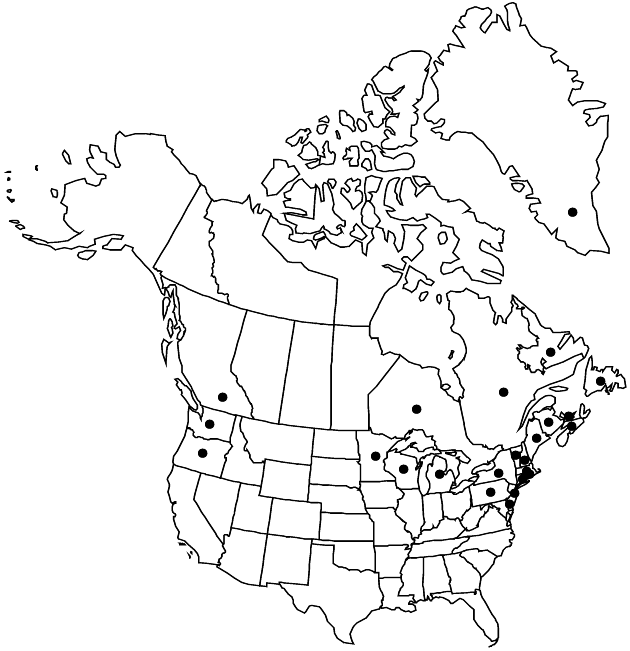Difference between revisions of "Hieracium vulgatum"
Fl. Hall., 128. 1819.
FNA>Volume Importer |
FNA>Volume Importer |
||
| Line 62: | Line 62: | ||
|publication year=1819 | |publication year=1819 | ||
|special status= | |special status= | ||
| − | |source xml=https://jpend@bitbucket.org/aafc-mbb/fna-data-curation.git/src/ | + | |source xml=https://jpend@bitbucket.org/aafc-mbb/fna-data-curation.git/src/f6b125a955440c0872999024f038d74684f65921/coarse_grained_fna_xml/V19-20-21/V19_413.xml |
|tribe=Asteraceae tribe Cichorieae | |tribe=Asteraceae tribe Cichorieae | ||
|genus=Hieracium | |genus=Hieracium | ||
Revision as of 18:37, 24 September 2019
Plants 30–60(–100+) cm. Stems proximally piloso-hirsute (hairs 1–3+ mm), distally stellate-pubescent and stipitate-glandular, sometimes piloso-hirsute as well (hairs 1–2+ mm). Leaves: basal 3–8+, cauline 1–5+; blades (often purple-mottled) lance-elliptic to lanceolate, 50–100 × 10–50+ mm, lengths 2–5 times widths, bases usually cuneate, sometimes rounded to truncate, margins ± dentate or entire, apices acute, faces usually ± piloso-hirsute (at least near margins, hairs 1–3+ mm), sometimes glabrate. Heads (1–)3–9+ in corymbiform arrays. Peduncles stellate-pubescent and stipitate-glandular. Calyculi: bractlets 13–16+. Involucres ± obconic, 8–10 mm. Phyllaries ca. 21+, apices acute to acuminate, abaxial faces stellate-pubescent and stipitate-glandular. Florets 40–80+; corollas yellow, 13–18 mm. Cypselae columnar, 2.5–3 mm; pappi of 30–40+, stramineous bristles in ± 2 series, ca. 5 mm.
Phenology: Flowering (Jun–)Jul–Aug.
Habitat: Disturbed sites, openings in thickets
Elevation: 10–100+ m
Distribution

Greenland, B.C., N.B., Nfld. and Labr., N.S., Ont., P.E.I., Que., Conn., Del., Maine, Mass., Mich., Minn., N.H., N.J., N.Y., Oreg., Pa., R.I., Vt., Wash., Wis., Europe.
Discussion
The correct name for the species here called Hieracium vulgatum may be H. lachenallii C. C. Gmelin (E. Lepage 1971; E. G. Voss 1972–1996, vol. 3). Plants of H. groenlandicum (stems mostly piloso-hirsute and not stipitate-glandular, corolla lobes distally ciliate) are sometimes treated as distinct from H. vulgatum in a narrow sense (stems usually stipitate-glandular and not piloso-hirsute, corolla lobes not ciliate distally).
Selected References
None.